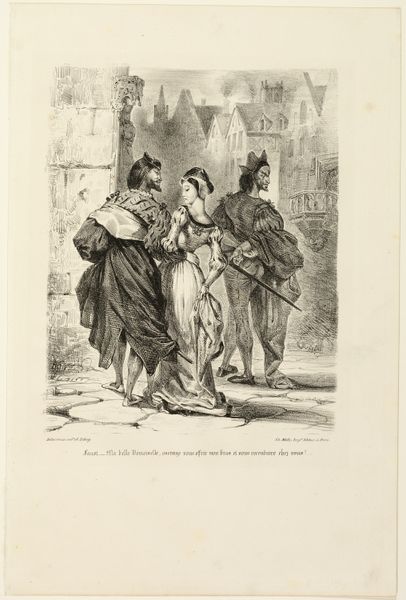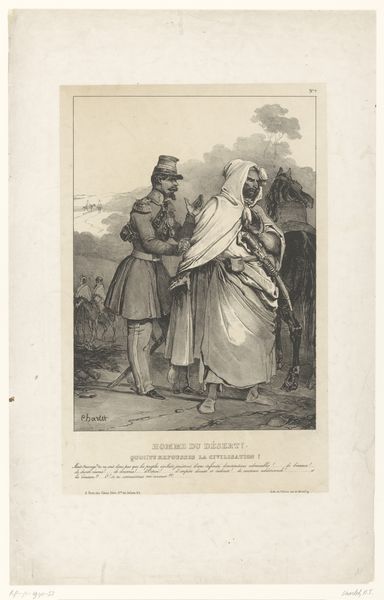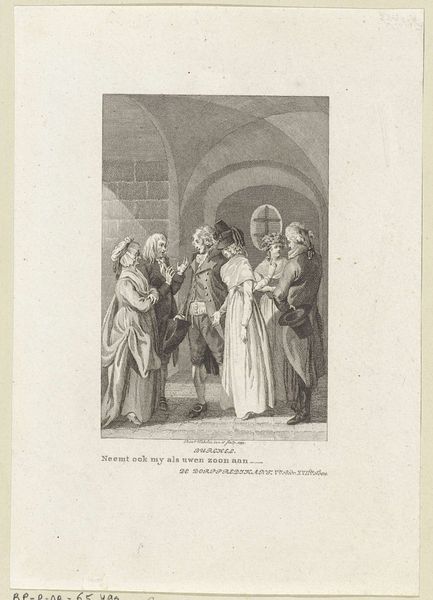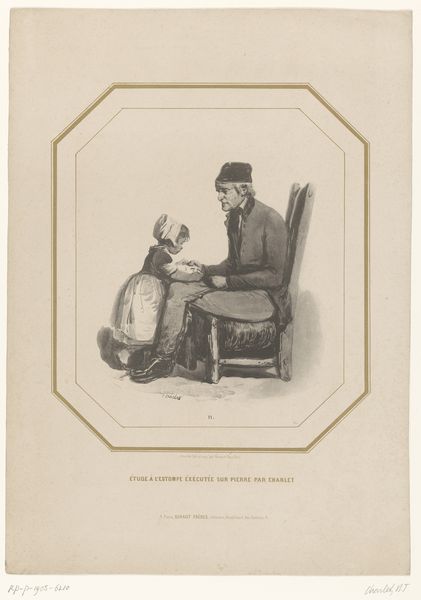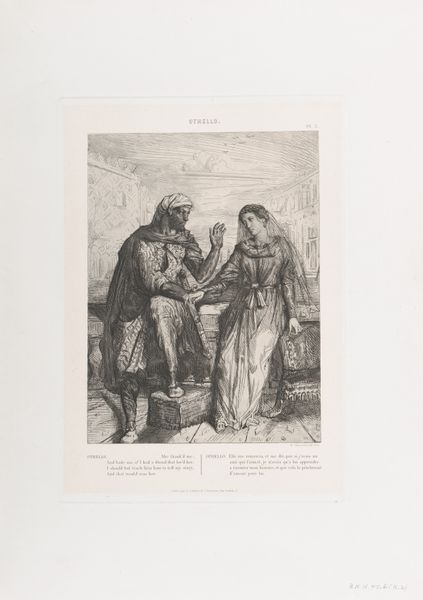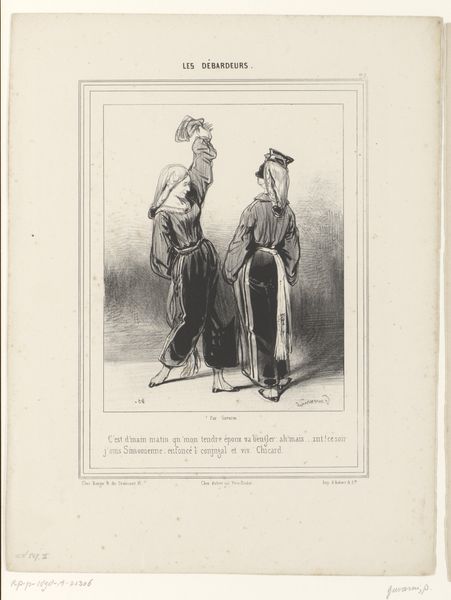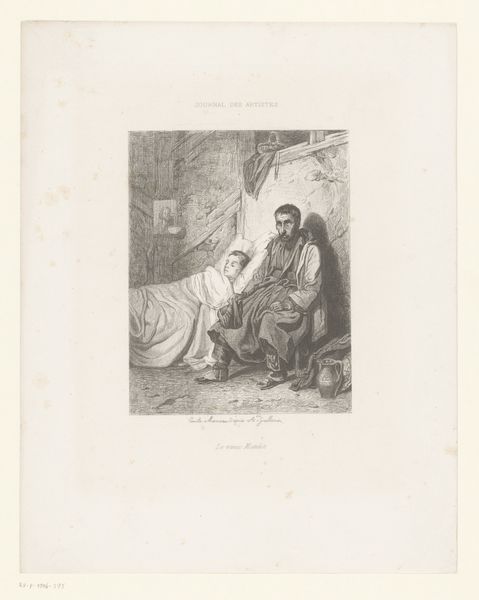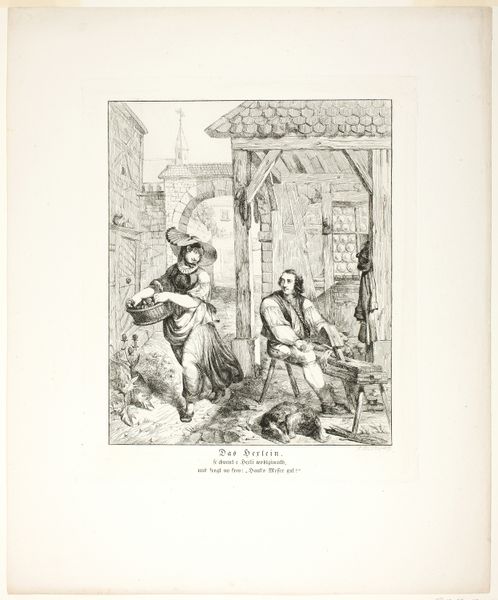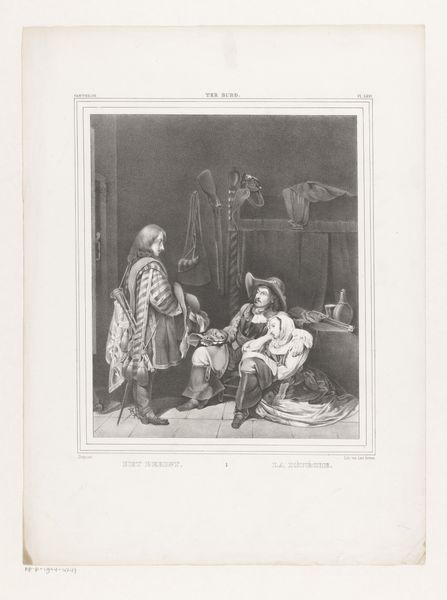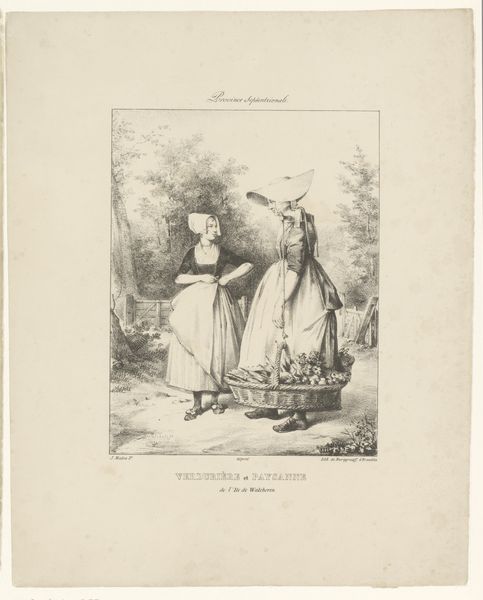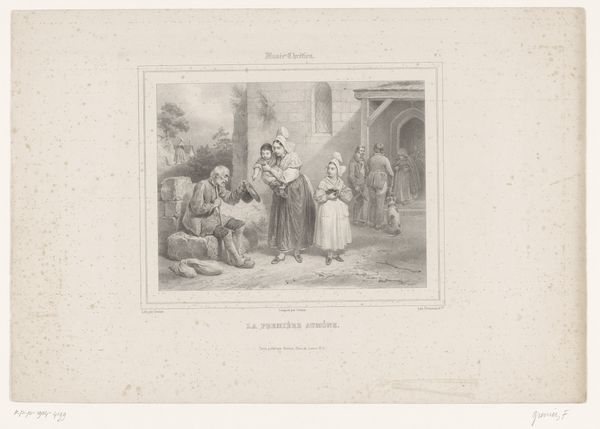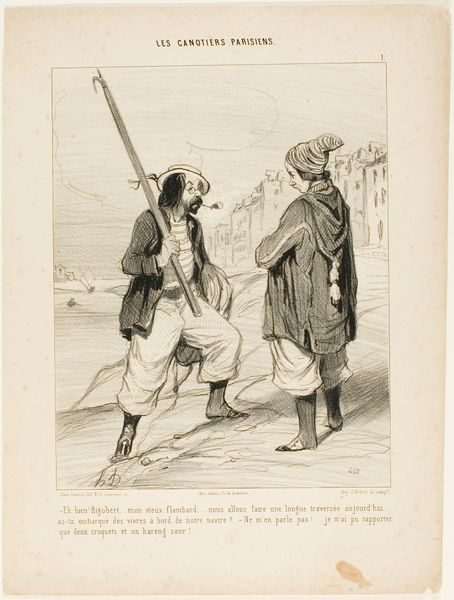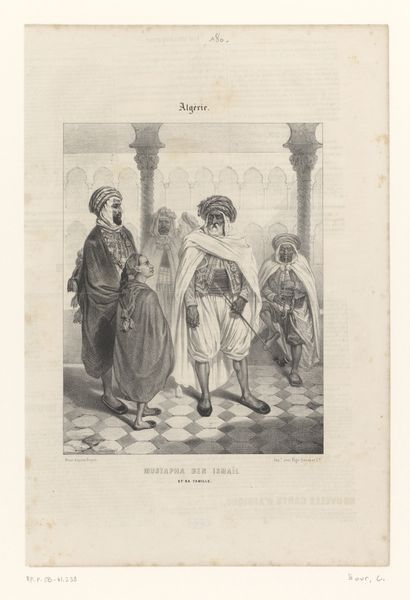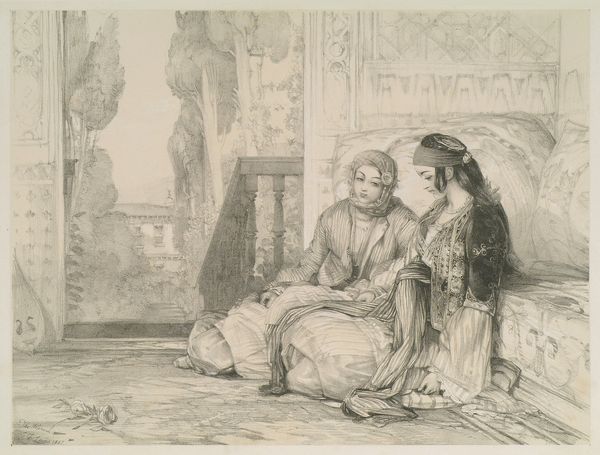
Officier stuurt een dronken soldaat naar het tuchtlokaal 1828
0:00
0:00
nicolastoussaintcharlet
Rijksmuseum
drawing, lithograph, print, paper, ink
#
portrait
#
drawing
#
narrative-art
#
lithograph
# print
#
caricature
#
paper
#
ink
#
romanticism
#
genre-painting
Dimensions: height 353 mm, width 244 mm
Copyright: Rijks Museum: Open Domain
Editor: This lithograph from 1828, by Nicolas Toussaint Charlet, is called "Officier stuurt een dronken soldaat naar het tuchtlokaal," or "Officer Sends a Drunken Soldier to the Guardhouse". It's a pretty small print. I find the depiction of the drunken soldier a bit humorous, almost slapstick in its depiction of inebriation. How do you interpret this work? Curator: This piece provides insight into the socio-political dynamics within the military during the post-Napoleonic era. The caricatured representation of the drunken soldier can be seen as a critique of the rigid hierarchies and discipline imposed on soldiers. The act of sending him to the "tuchtlokaal," or guardhouse, speaks to the dehumanizing aspects of military life and the power imbalances inherent within that system. Editor: So, it's less about the humor of the scene and more about social commentary? Curator: Exactly. Charlet, influenced by the Romantic movement, used genre painting as a vehicle for subtle social critiques. How might the concept of "toxic masculinity" apply to how we view military culture, both in Charlet's time, and our own? Consider how traditional roles of authority are being scrutinized. The act of disciplining could then be a demonstration of authority. Editor: I didn't consider the aspect of toxic masculinity. Viewing it in relation to today's lens does give it another depth. It makes you question the purpose behind it all. Curator: Indeed. What does this work suggest to you about the role of art in questioning societal structures? How does an image like this encourage dialogue about power, discipline, and the individual within an institution? Editor: It highlights that art doesn't need to be grand to provoke thought, that it can be simple with significant meanings. Curator: Precisely!
Comments
No comments
Be the first to comment and join the conversation on the ultimate creative platform.
